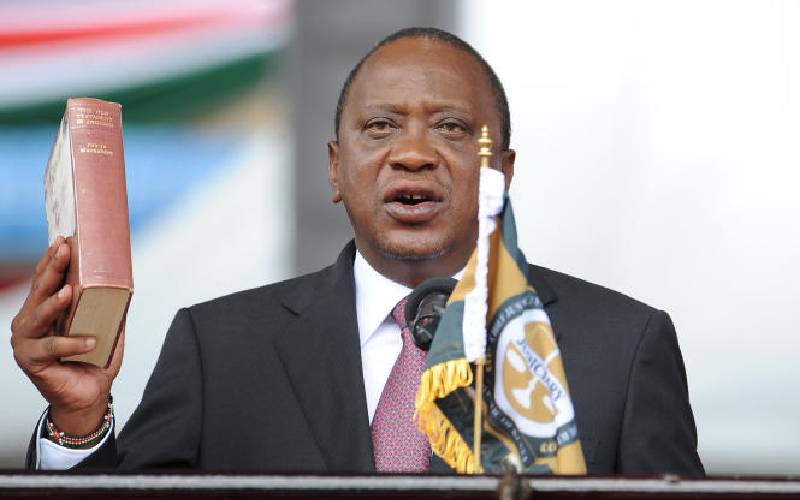×
The Standard e-Paper
Join Thousands Daily

President Uhuru Kenyatta takes oath of office as President of the Republic of Kenya for the second term, at Kasarani Stadium. [File]
In just about 200 days, President Uhuru Kenyatta is expected to hand over the instruments of power to Kenya’s fifth president. The lead up to the succession parade and its activities is proving a high stakes game. It is informed with a rich galaxy of both formal and informal players, some with axes to grind, while others are only carrying out their duty.